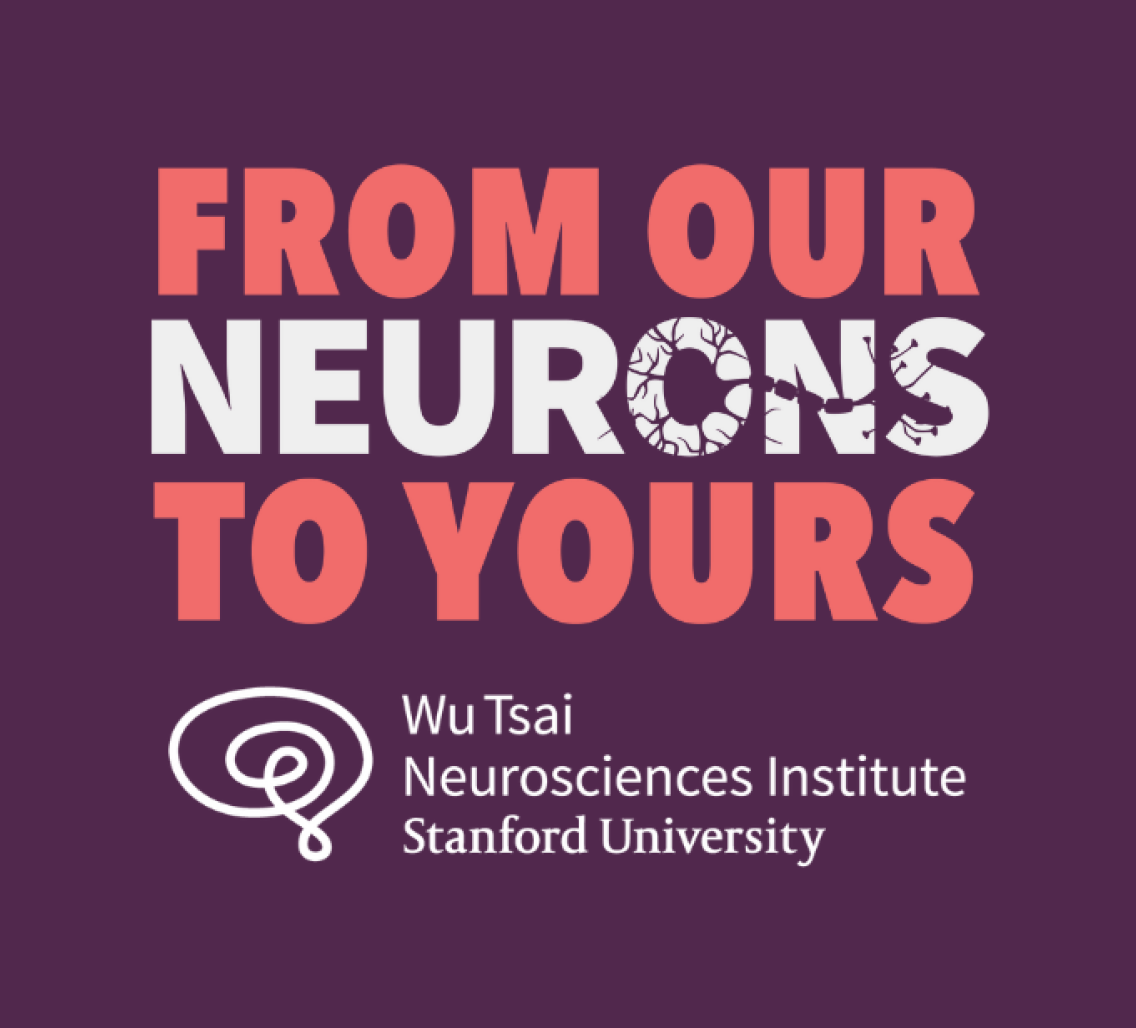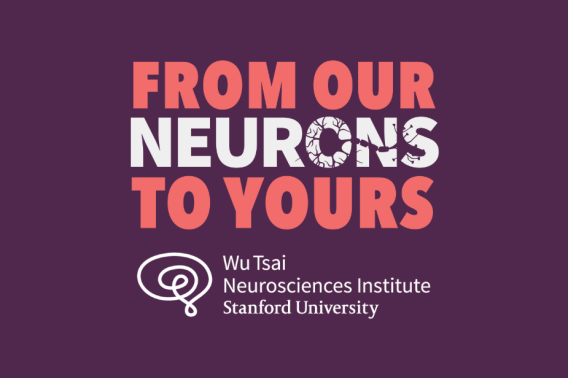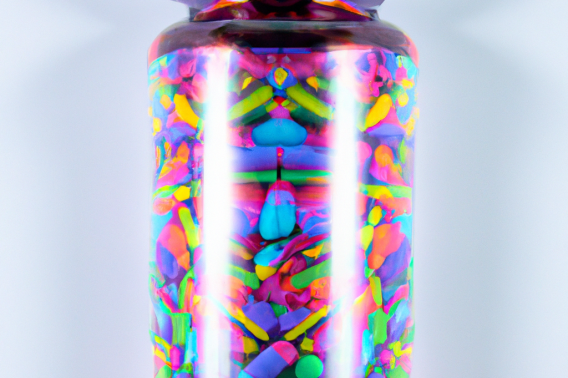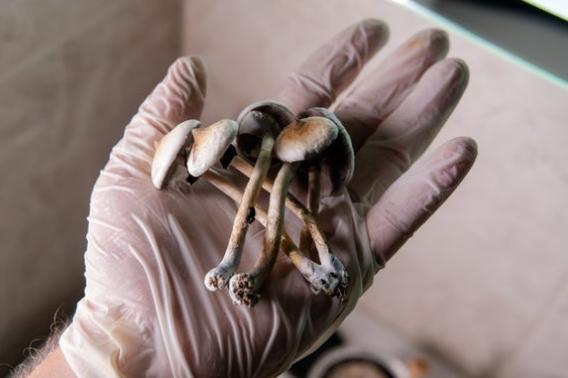Psychedelics and Empathy

Recently, there's been growing excitement in the scientific community about revisiting the potential medical benefits of psychedelic drugs that have been off limits for decades.
Scientists are discovering or rediscovering applications of psilocybin, LSD, MDMA, and other compounds for treating people with depression, anxiety, and post-traumatic stress disorder. The Wu Tsai Neurosciences Institute has several leading experts paving the way in this field, including today's guest, Robert Malenka.
Beginning in the 1980s, Malenka pioneered neuroscientists' understanding of how our brain circuits to change with experience by uncovering fundamental mechanisms of synaptic plasticity. More recently, his laboratory at Stanford has explored the brain's so-called "reward circuitry," including its role in social behavior and empathy and its response to drugs such as MDMA.
Malenka is Nancy Friend Pritzker Professor of Psychiatry and Behavioral Sciences at Stanford and a Deputy Director of the Wu Tsai Neurosciences Institute where he co-directs the NeuroChoice Initiative, which takes an interdisciplinary approach to understanding human decision making and the science of addiction.
Listen to the full episode below, or on Apple Podcasts, Spotify, Google Podcasts, Amazon Music or Stitcher. (More options)
Links
Heifets & Malenka, "MDMA as a Probe and Treatment for Social Behaviors." Cell (2016)
Multidisciplinary Association for Psychedelic Studies (MAPS)
Wu Tsai Neurosciences Institute NeuroChoice Initiative
More on Malenka's work
"5 Questions: Robert Malenka on Ecstasy research" (Stanford Medicine, 2016)
Episode Transcript
Nicholas Weiler:
This is From Our Neurons to Yours, a podcast from the Wu Tsai Neurosciences Institute at Stanford University. On this show, we crisscross scientific disciplines to bring you to the frontiers of brain science. I'm your host, Nicholas Weiler.
Here's the sound we created to introduce today's topic, MDMA.
Why are psychiatrists taking a fresh look at MDMA? Recently, there's been growing excitement in the scientific community about revisiting the potential medical benefits of psychedelic drugs that have been off limits for decades. Scientists are discovering or rediscovering applications of psilocybin, LSD, MDMA, and other compounds for treating people with depression, anxiety, and post-traumatic stress disorder. We have several leading experts paving the way in this field here at Stanford, including today's guest.
Robert Malenka:
Hi, this is Rob Malenka. I'm the Pritzker Professor of Psychiatry here at Stanford University and a deputy director of the Wu Tsai Neurosciences Institute. I run what I call a neurosynaptic and circuit neuroscience lab here at Stanford, mostly studying rodent models of various forms of adaptive and pathological motivated behaviors.
Nicholas Weiler:
Most people may not have heard of MDMA as MDMA. People have probably heard of ecstasy or Molly as one of these drugs, but probably don't realize it was invented in the early 20th century by a drug company looking to develop drugs for bleeding disorders and then popularized by psychiatrists in the '70s because the idea was that it might help accelerate therapy.
So then of course, the history we're probably more familiar with is that it was banned in '85 and made a Schedule I drug, which means officially it has no therapeutic use. That brings me to the question that I want to ask, which is that why are psychiatrists and neuroscientists getting interested in MDMA again as a way of helping people in the clinic?
Robert Malenka:
Well, I think to give credit where credit is due, as you said, it was synthesized by, I forget which drug company, and then it was rediscovered or resynthesized by a very famous synthetic organic chemist named Alexanders Shulgin who worked in Berkeley and in the '70s and '80s was synthesizing psychoactive substances and then taking them himself with a cadre of friends.
From his personal experience, he decided it might be useful to some of his friends and colleagues in the Bay Area who were either psychiatrists or some form of therapist, because the qualitative experience many people had on MDMA was a drug that opened the individual up to a more positive, empathic, and perhaps even compassionate social experience.
If you accept that as part of the experience of MDMA, it's kind of a little bit almost intuitively obvious that maybe it might be very useful for therapists as they're trying to help their patients or their clients open up, have better access to their feelings, and have better compassion, both for themselves and others.
So it started by a whole group of therapists, truth be told, illegally. It was not an FDA-approved drug. It got out into the recreational community when it became, for lack of a better term, a party drug. And like all drugs, it has some positive attributes, which maybe we'll talk about, but it has some negative ones too. And then it was made Schedule I, making it very hard to study.
The Renaissance in using it again, I mean, I think you have to give credit to this organization called the Multidisciplinary Association for Psychedelic Studies, MAPS, and its leader, a guy named Rick Doblin, who I think because of its history, because there was this established community of therapists who really thought it was valuable and really made it a goal to allow the clinical study of MDMA, especially for its potential therapeutic utility.
He did all the hard work of convincing the FDA to allow MAPS and the people they funded to actually study its therapeutic utility. And they decided to study it initially in individual suffering from post-traumatic stress disorder. And they decided to do clinical trials where it's being used as an adjunct to psychotherapy.
The psychotherapy occurs. There's a series of preparatory sessions for the therapist to work with the individual who's suffering from PTSD, and then take the MDMA before a therapeutic session, have the therapeutic session while on MDMA, and then have a number of subsequent therapy sessions, both to understand what went on during the therapeutic session when the patient was on MDMA.
It's gotten a lot of attention because several years ago they did what's known as a phase II trial, which is a small number of subjects, and that phase II trial showed really good results. More recently, a paper was published in a prominent journal reporting a study of close to 100 individuals with PTSD who had the MDMA assisted psychotherapy and comparing the effects with another group of patients who had the same psychotherapy but without the MDMA.
The results from this study were striking. The individuals who had the psychotherapy with MDMA showed a dramatic reduction in their symptoms of PTSD. The reduction in symptoms lasted six months, eight months, 10 months, maybe even 12 months beyond the treatment.
Nicholas Weiler:
The thinking is that this is because it helps the psychotherapy itself, it makes the psychotherapy more effective. Is that the idea?
Robert Malenka:
That's my interpretation. It allows the person to re-experience the trauma in a more open way because they have a better therapeutic alliance with their therapist. It allows them to experience those emotions in what feels like a safer environment. Again, the psychological mechanisms by which this works, I don't know. I'm not sure anybody knows, but it really seems to have been a very powerful therapeutic intervention.
Nicholas Weiler:
I was interested in what you said about it having these very long-lasting consequences. In that study, presumably there's a confound between what's the MDMA and what is the psychotherapy, because you're doing both of them.
You have been very deep into the field of neuroplasticity. This is your area of expertise. Is there an aspect of neuroplasticity involved in how we think that MDMA might be helping patients, whether it's folks with PTSD or potentially with autism, which I know is another area that people are looking at it for?
Robert Malenka:
Yeah, I mean, I think there has to be. By definition, because there was this long-lasting change in these fairly severe symptoms, plasticity must have occurred in the brain. What does plasticity mean? Plasticity means changes in the physical connectedness in your brain.
If you're a neuroscientist, most of us believe that everything about our thoughts, feelings, and behavior are mediated by complex patterns of electrical activity in our brain. And if something changes in how we're thinking or feeling or behaving, that has to be due to complex plasticity processes happening in our brain. So yes, the psychotherapy itself elicited some form of plasticity, and the MDMA greatly enhanced it, at least in this population of patients.
Nicholas Weiler:
I mentioned earlier this case study of autism, which I know is something that you and your lab are interested in. What do we know about what MDMA is actually doing? How is it affecting these changes in the brain, and why does that make it potentially exciting for clinical use?
Robert Malenka:
It's a good question. Like everything, the answer, everything to do with neuroscience and how the brain works, it's complicated. I'm going to change your question a little bit.
Nicholas Weiler:
That's fair.
Robert Malenka:
What got me very interested in studying it is this aspect of the qualitative experience that human subjects have on MDMA, which seems very commonly to almost everybody who takes the substance to make them more open to a positive non-aggressive social interaction. Some would even say it promotes empathy in the individuals experiencing the drug. That's a little controversial.
Think about that. A drug can actually make you more empathic, more interactive in a positive, pro-social, non-aggressive manner. Drugs work on proteins in the brain, work on receptors in the brain. So studying MDMA obviously will tell you something about how MDMA works, but it will also tell you something about these very important processes about human interactions, like how does empathy actually happen? If you have a drug that enhances that, that's a way of really probing that. That's one of the reasons I became very interested in it.
We know a modest amount. The audience may know there are different chemical messengers in the brain that go by the names of substances like dopamine. MDMA actually works by enhancing the release of serotonin. The advantage of studying a drug like MDMA in animal models like mice is we can probe their brains.
In my lab, we've figured out first that MDMA causes increases in the levels of serotonin. A key region in the brain where that happens is a region by the horrible name of the nucleus accumbens. But the reason that's important is the nucleus accumbens is part of the reward circuitry of the brain with also, to speak to your question about autism, the reason I'm really interested in the potential of, and let me be careful here, MDMA-like drugs, because as I mentioned earlier, like all drugs, MDMA taken on occasion in the presence of a therapist may have powerful therapeutic effects.
But it's doubtful it's ever going to be useful as a treatment or a medication that is taken daily. With repeated doses, it may have some neurotoxic effects, it may have some abuse potential. And we've learned from the opioid epidemic, we have to be very thoughtful and careful as drugs that have abuse potential become legalized for medical therapeutic uses, they become more available to the general public. They will be abused and they will be used inappropriately [inaudible 00:12:48].
Nicholas Weiler:
Right. Well, and presumably if there is a real medical use here, we want to be very careful that the lessons of the past are not repeated and there's not a backlash if people start using it on the street in an inappropriate way.
Robert Malenka:
That's exactly correct. If MDMA gets approved, for example for the treatment of PTSD, I don't think it's going to be siphoned off to the degree that opioids were, but it is something that we need to consider. That's another reason why I'm so interested in studying it in my lab, is if we can really understand how it works, it will allow us to make better types of MDMA that have maintained potential therapeutic efficacy while minimizing its potential toxic effects in the brain or its abuse potential.
Now let's talk about autism and why I'm really interested in that. A major feature, a diagnostic feature of individuals with some form of autism spectrum disorder is a detriment in their ability to interact in a quote, a normal social way. Individuals can be socially withdrawn. They can have difficulty recognizing the emotions in somebody else with whom they're interacting.
If MDMA is indeed a drug that opens up an individual's ability or enhances an individual's ability to socially interact and to have more, in quotes, "empathy" for another individual with whom they're interacting, I think it's again, a little bit intuitively obvious that maybe an MDMA-like drug may be beneficial for individuals with autism spectrum disorder. So I want to be very careful.
By no means am I saying that every individual with autism spectrum disorder may eventually want to be taking an MDMA drug, but there may be a subpopulation. In fact, this organization MAPS has sponsored a small phase II study of individuals with autism spectrum disorder, again as an adjunct to psychotherapy for helping individuals with what are known as social anxiety disorder. Again, it was a small study, but there seemed to be some benefit.
I'm more interested in the possibility of developing an MDMA-like drug that individuals who have difficulty having positive, what I would call in quotes, "normal social interactions," could take more frequently. That would include not only individuals with autism spectrum disorder, but individuals who have the diagnosis of schizophrenia who can become very socially withdrawn, or some individuals with forms of depression where they can't experience the positive aspects of a social interaction.
For full disclosure, I'm on the scientific advisory board of two different companies, one of which has announced they are pursuing the possible clinical utility of a subtype of drug like MDMA. It's called enantiomer. The MDMA that is currently being used in the PTSD trials is a mixture of two different chemicals.
We think the therapeutic part of this MDMA may involve one type of MDMA and the abuse potential may be more triggered by this other type of MDMA. If this hypothesis is true, only giving subjects to the good type of MDMA may really have some benefit. Again, the goal of drug development is always can we make a better drug that is more efficacious therapeutically and has less side effects, less abuse potential, less possible toxicity?
Nicholas Weiler:
Yeah, that's fascinating. It seems like such an interesting time in neuroscience that we can start to understand something that's so human, the desire and the rewarding aspect of connecting with one another. We've got this association with ecstasy and MDMA as a party drug, but if we take the stigma out of party drug, it's really something that helps people connect.
This effort to help people with PTSD through these clinical trials and looking into autism and maybe schizophrenia, it's like trying to find a way of restoring that human ability to connect to people who are lacking it.
Robert Malenka:
I completely agree with you. That was very well articulated. Just to expand on it, look at our world and what's going on in it. It's not only for individuals that we label as having pathological problems with social interactions and connectedness, but I would also argue, what is more important for human happiness and the survival of the human species? Increasing the ability of human beings to connect with each other in an empathic, compassionate manner. I find that very exciting, and I think neuroscience can contribute to that.
Nicholas Weiler:
Fantastic. Well, thank you so much for this fascinating conversation.
Robert Malenka:
Yeah, my pleasure. It was a lot of fun talking to you.
Nicholas Weiler:
Thanks so much again to our guest, Rob Malenka. To learn more, check out the Wu Tsai Neurosciences Institute at neuroscience.stanford.edu. This episode was produced by Michael Osborne with production assistance by Christian Haigus and Morgan Honaker. I'm your host, Nicholas Weiler.



